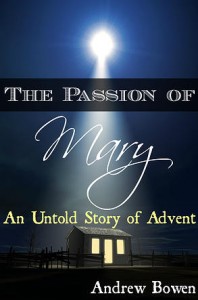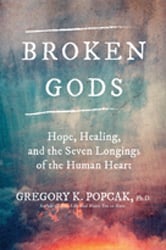 When I was debating quitting my doctoral studies – specializing in the Virgin Mary – I came across a blog, Project Conversion, written by Andrew Bowen. In a last ditch attempt to deal with his own anger and disappointment with his Christian experience and the effects of the post-9/11 world, Bowen decided to explore twelve traditions in twelve months. He dove into each tradition, with a mentor, with books, with practice. He lived as if he was a believer of each faith. It was fascinating. Sometimes I thought it was far too superficial, other times I was moved by his experiences. Bowen’s blog was one of a small handful that inspired me to start my own blog and to practice as if.
When I was debating quitting my doctoral studies – specializing in the Virgin Mary – I came across a blog, Project Conversion, written by Andrew Bowen. In a last ditch attempt to deal with his own anger and disappointment with his Christian experience and the effects of the post-9/11 world, Bowen decided to explore twelve traditions in twelve months. He dove into each tradition, with a mentor, with books, with practice. He lived as if he was a believer of each faith. It was fascinating. Sometimes I thought it was far too superficial, other times I was moved by his experiences. Bowen’s blog was one of a small handful that inspired me to start my own blog and to practice as if.
Naturally, I jumped at the chance to review his latest book, The Passion of Mary: An Untold Story of Advent. Combining stories from the New Testament, apocryphal sources, and his own imagination, Bowen tells the tale of Mary from the Annunciation through the Nativity of Jesus, breaking it into 14 short passages to be used as an Advent devotional. The title is a bit misleading, since traditionally the Passion of Mary refers to her entire life with Jesus, ending with her grief at the crucifixion and her ascent to heaven.
Theologically, there isn’t anything new here, save for a few muddy attempts to cram ideas together. The first ‘day’ covers creation, Moses, the Incarnation, the Adversary, and reconciliation into a few paragraphs. There’s a wince inducing linking of doubt with sin in Joseph’s story in ‘day’ 5. More problematic is the rather traditional linking of suffering and “holy refinement” in ‘day’ 6. These are not likely Bowen’s own ideas as they are par for the course in Roman Catholic theology.
There is also a (fictional) suggestion that the Adversary, another name for Satan. attempted a military assault on the heavens during the birth of Christ. Bowen suggests that even our own bodies are ‘adversarial’ to our own accepting of Jesus as savior, suggesting the worst of Pauline and Augustinian theology. Unfortunately, much of the theology that comes through in this short work is the more tedious of the Roman Catholic tradition.
What works incredibly well in this book are the fictional re-tellings of Mary’s story. Mary is often used to further other people’s agendas. In this book she is presented a whole human being. I am quite partial to the Annunciation, the moment where Mary is greeted by Gabriel and told she will bear the Son of God. Bowen’s retelling is lovely. Through fiction other possibilities are also brought to life. For example, in ‘day’ 8 Bowen suggests (not as an ‘actual’ concept, but through fiction) that the angel Gabriel is the Star shining in the east. I loved this idea. Thankfully, hours after I finished the book what lingered in my mind was not the devotional or theological aspects of the book, but the beautiful scenes from the fictional portions.
Overall, this book is somewhat cliché, but perfectly standard and safe for all Christians. However, the fictional sections alone might be of value to Christians for the fresh and humanizing touch of all too familiar Christmas stories. For Pagans interested in the Virgin Mary, you can skip this book – I can give you far more interesting reading suggestions if you’re interested in the Blessed Virgin!















